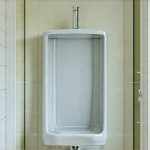The urge to defecate is a fundamental physiological process, deeply intertwined with our overall well-being. It’s a signal from the body that waste needs to be eliminated, a natural rhythm designed to maintain internal homeostasis. For many, responding to this call is automatic and unthinking. However, in modern life, various factors – busy schedules, social anxieties, lack of access to appropriate facilities, or simply habit – often lead to the suppression of this urge. While seemingly innocuous, consistently ignoring these natural bowel reflexes can have a surprisingly wide range of physical and psychological consequences, impacting everything from digestive health to emotional states. This article will delve into the complexities of suppressing bowel movements, exploring the mechanisms behind discomfort, potential long-term effects, and strategies for fostering healthier habits.
The body isn’t designed to frequently ignore its natural signals. Bowel regularity is vital not just for eliminating waste products but also for maintaining a healthy gut microbiome, proper hydration levels, and even mental clarity. The rectum, where stool accumulates awaiting elimination, has stretch receptors that trigger the urge to defecate. When this urge is repeatedly ignored, these receptors can become desensitized over time, weakening the signal and making it harder to go when a convenient opportunity does arise. More than just a matter of inconvenience, chronic suppression can initiate a cascade of physiological changes that ultimately lead to discomfort and potentially more serious health concerns. This isn’t simply about “holding it in” – it’s about disrupting a core bodily function with far-reaching ramifications. Understanding what you can learn from testing after switching diets can help assess the impact of dietary changes on bowel regularity.
The Physiological Mechanisms Behind Discomfort
Suppressing the bowel reflex isn’t a neutral act; it actively alters the digestive process. When you resist the urge, the rectum continues to fill, stretching beyond its normal capacity. This prolonged stretch can lead to discomfort ranging from mild bloating and cramping to more intense abdominal pain. The colon, responsible for absorbing water from waste, will attempt to reabsorb more fluid from the stool to reduce the sensation of fullness. This is where things begin to escalate – as more water is removed, the stool becomes harder and drier, making it increasingly difficult to pass when you finally do respond to the urge.
This process creates a vicious cycle. The harder the stool becomes, the greater the effort required for elimination, increasing the likelihood of straining during bowel movements. Straining, in turn, can contribute to hemorrhoids, anal fissures, and even pelvic floor dysfunction. Moreover, consistently resisting the natural reflex disrupts the normal motility – the rhythmic contractions that move waste through the digestive tract. This disruption can lead to constipation, a condition characterized by infrequent or difficult bowel movements, further exacerbating discomfort and potentially leading to impacted stool. The physiological effects aren’t confined to the lower gastrointestinal tract either; the pressure and discomfort can radiate upwards, causing nausea, back pain, and even generalized fatigue. It’s important to consider natural remedies for soothing stomach discomfort alongside addressing these physiological effects.
The gut-brain axis plays a crucial role here as well. The constant internal struggle against natural urges creates stress and anxiety, which directly impact digestive function. Stress hormones like cortisol can further disrupt motility, worsen constipation, and contribute to irritable bowel syndrome (IBS) symptoms. Essentially, the act of suppressing bowel movements isn’t just physical; it’s a stressful event that sends signals throughout the body, influencing both physical and emotional well-being.
Understanding Constipation & Its Connection
Constipation is arguably the most common consequence of habitually suppressed bowel reflexes. As mentioned previously, the colon attempts to compensate for continued filling by reabsorbing more water, leading to harder stools. However, chronic constipation isn’t simply about difficulty passing stool; it represents a significant disruption in the digestive ecosystem. The longer stool remains in the colon, the more toxins are reabsorbed into the bloodstream, potentially contributing to inflammation and other health issues.
- Functional Constipation: This type is often linked directly to lifestyle factors like diet, hydration, and physical activity – but habitual suppression significantly exacerbates it.
- Structural Constipation: While less common, underlying anatomical issues (like strictures or blockages) can be worsened by the prolonged pressure associated with suppressing bowel movements.
Addressing constipation requires a multi-faceted approach. It’s not just about using laxatives; it’s about restoring natural bowel function through dietary changes (increasing fiber intake), adequate hydration, regular exercise, and most importantly, responding to the urge when it arises. Ignoring the initial signal only makes the problem worse, creating a cycle of harder stools, increased straining, and chronic discomfort. Signs from test results that call for diet overhaul can help identify dietary changes to support bowel regularity.
The Role of Pelvic Floor Dysfunction
The pelvic floor muscles play a vital role in bowel control, providing support for the rectum and anus. However, consistently straining during bowel movements – often resulting from habitually suppressed urges – can weaken these muscles over time, leading to pelvic floor dysfunction. This dysfunction manifests in various ways, including fecal incontinence (leakage), difficulty with complete evacuation, and chronic pelvic pain.
The weakening of the pelvic floor isn’t limited to just straining; the constant pressure within the rectum from prolonged stool retention also contributes to muscle fatigue and loss of tone. This can create a feedback loop where weakened muscles make it harder to control bowel movements, leading to increased anxiety about going and potentially further suppression. Restoring pelvic floor function often requires specialized physiotherapy – exercises designed to strengthen and rehabilitate these crucial muscles. Key takeaways from tracking digestive data over time can provide insights into the impact of bowel habits on pelvic floor health.
Psychological Impact & The Anxiety Cycle
Beyond the physical discomfort, suppressing bowel reflexes can have a significant psychological impact. The constant internal conflict between urge and restraint creates stress and anxiety, particularly for individuals who already struggle with body image issues or social anxieties. This can lead to a cycle of avoidance – fearing the inconvenience or embarrassment associated with finding a restroom, people may consciously suppress urges even more frequently, exacerbating both physical and psychological distress.
- Social Anxiety: The fear of having an “accident” or needing to use a public restroom can be paralyzing for some individuals, leading them to avoid social situations altogether.
- Control & Shame: Suppressing bowel movements can provide a false sense of control but also contribute to feelings of shame and guilt surrounding natural bodily functions.
- Mental Fatigue: The constant mental effort required to resist urges drains energy and contributes to overall fatigue.
Breaking this cycle requires addressing both the physical and psychological components. Mindfulness techniques, therapy (particularly cognitive behavioral therapy), and gradual exposure to situations that trigger anxiety can all be helpful in reducing the fear and shame associated with bowel function. Understanding signs from testing that show gut lining damage may help address underlying anxieties related to digestive health.
Ultimately, understanding the discomfort arising from suppressing natural bowel reflexes is about recognizing a fundamental truth: our bodies are designed to operate in harmony with their own signals. Ignoring these signals isn’t just inconvenient; it’s disruptive, potentially harmful, and ultimately counterproductive. Prioritizing regular bowel movements – by responding to urges promptly, adopting healthy lifestyle habits, and addressing any underlying anxieties – is an investment in overall health and well-being. Top early signs from stool tests that need follow-up can help identify potential issues and guide healthy bowel habits. GI diagnostics used in recovery from eating disorders highlight the importance of proactive assessment and intervention when addressing digestive concerns.


















